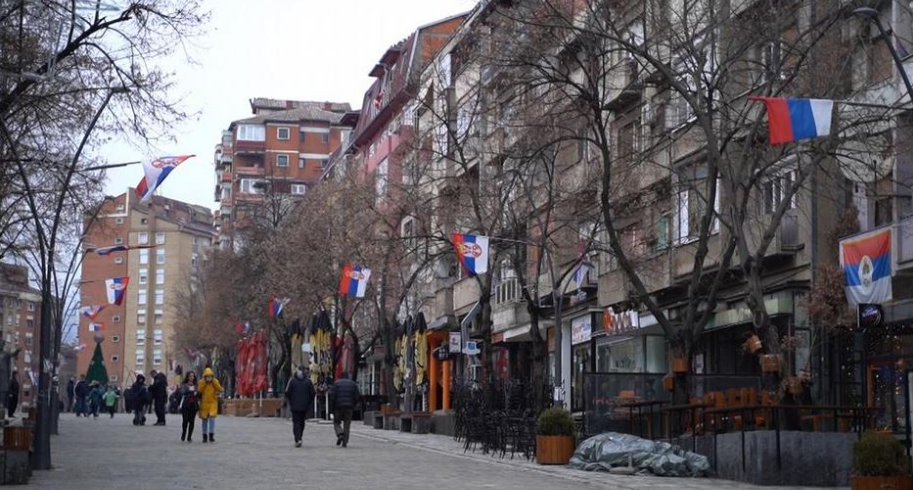Kosovo is being asked to find a way to establish the Association of Serb-Majority Municipalities. According to the EU, this is an international obligation. But the Kurti government says there will be no one-ethnic association of municipalities.
The Association of Serb-Majority Municipalities since 2013 continues to be a topic of debate in Kosovo, Serbia and among the international presence is closely related to the Kosovo-Serbia dialogue. Kosovo in 2013 signed the agreement of principles for the establishment of the Association of Serb Majority Municipalities, but, in 2015, the Constitutional Court of Kosovo found that many points of this agreement are contrary to the Constitution of Kosovo. Since then, nothing has been done in this direction except the constant request of Serbia for official Pristina to establish the Association and the constant opposition of official Pristina that do not allow the Association along ethnic lines.
The EU expects proposals from Kosovo
Given this situation and on the eve of the resumption of the Kosovo-Serbia dialogue, the European Union is awaiting proposals from Kosovo to establish the Association of Serb-Majority Municipalities. European Commission spokesman Peter Stano said last week that “the 2013 agreement on the Association has been concluded in good faith and that it is up to Kosovo to propose a way forward for its implementation.”
“In 2013, Kosovo entered into an agreement forestablishment of the Association of Serbian Municipalities. This agreement was concluded in good faith by all parties involved. It has never been canceled. In fact, the 2013 agreement was ratified by the Assembly by a two-thirds majority vote, and in doing so, Kosovo received an international obligation to implement this agreement. So, Kosovo has to propose a way forward to implement the agreement “, said Peter Stano for the Kosovar media kosovapress.
The Government of Kosovo does not change its position
Government of Kosovo led by Albin Kurti, continues to oppose the idea that the Association has executive powers and according to him, “will not be allowed to have anything that calls into question the functioning of the state.” So says Kosovo government spokesman Përparim Kryeziu. “You know, the government has a clear position on this issue. Prime Minister Kurti said that freedom of association is a freedom guaranteed by the Constitution, for this there is a Constitution and a judgment of the Constitutional Court, which will be in the service of the functioning of the country and not in the dysfunctionalization of the country. That is why we said that there can be no one-ethnic association of municipalities “, said the spokesman, Përparim Kryeziu.
Serbia insists on establishing the Association
The Serbian side continues to insist that Pristina should establish the Association of Serb-Majority Municipalities with executive powers. This is the refrain of the Serbian President, Aleksandar Vuiqi., And he emphasized this once again in the last direct meeting he had in Brussels with the then Prime Minister, Avdullah Hoti, within the Kosovo-Serbia dialogue.
According to him, he is ready “to discuss a compromise solution with Kosovo, but only on the condition that Kosovo previously establishes the Association of Serb-Majority Municipalities.” “The association cannot be a non-governmental organization. We are always for dialogue and conversation. “We want peace and stability, the flow of goods, capital, services and people,” Vucic was quoted as saying by Serbian public media RTS.
Serbia’s constant insistence to include in the dialogue the issue of the Association of Serb Majority Municipalities, has caused the dialogue to be interrupted and there are difficulties in its resumption. It is not yet known whether the Association issue will be part of talks between Kosovo Prime Minister Albin Kurti and Serbian President Aleksandar Vucic at their expected meeting in late June.
International agreements need political consensus within Kosovo
The issue of the Association has long been debated among analysts in Kosovo. Demush Shaha, executive director of the EPIK think-tank, which is committed to European reforms, told DW that international agreements on Kosovo must always have a political consensus within Kosovo. “The lesson from the 2013 agreement for the association is a lesson on how Kosovo should behave in the exercise of its international subjectivity. In 2013, the burden of establishing the association was not taken by Government X or Government Y, but by the Republic of Kosovo as a legal entity on the international scene.
Any failure to implement these international obligations will have this consequence on Kosovo’s reputation and credibility as an actor in international relations. Therefore, we always insist that on the international stage decisions can not be taken by any current majority, but must always reflect the consensual will of the political spectrum. Such an approach always ensures the continuity of compliance with our international obligations. In fact, such a thing is also a constitutional requirement, according to article 18.1 “, says Shasha.
Analyst Shasha believes that the establishment of the Association will remain on the table in the framework of the dialogue for the normalization of Kosovo-Serbia relations. According to him, “this issue will not be an isolated agreement, but part of a comprehensive agreement for the normalization of relations, where the Association will be only one element of the agreement.”
According to analyst Shasha, the government should consider setting up the association, in line with the Constitutional Court ruling. In this regard, I consider that the solution can be found within the competencies of the association, which was foreseen by the Ahtisaari package, such as issues of culture, art, science and education (Article 4 of the Ahtisaari package), in harmony with the European Charter of Local Self-Government. The materialization of the cooperation of Serb-majority municipalities with the state and institutions of Serbia, under the coordination of the Ministry of Local Government Administration (Article 10 of the Ahtisaari package), should also be considered. An important part of this cooperation is the agreement on the transparency of Serbian state funding of Serb municipalities in Kosovo (Article 11 of the Ahtisaari package). Therefore, within the framework of such competencies, I do not see any concern in the establishment of the association “, says Demush Shasha.
The establishment of the Association of Serb-Majority Municipalities is foreseen by the Brussels agreement between Kosovo and Serbia of 2013. The Association of Serb-Majority Municipalities is expected to gather around itself ten municipalities in Kosovo where the majority of the population are Serbs, which are Mitrovica and North, Kllokot, Partesh, Ranilug, Gracanica, Zvecan, Zubin Potok, Novo Brdo, Leposavic and Strpce. The association aims to represent the collective interests of those municipalities, in particular in the field of education, health, urban and rural planning and the economy./DW




